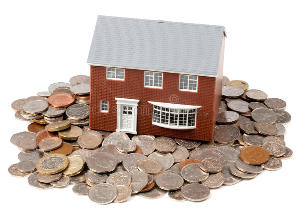In a presentation to the NZ Property Investor Federation conference last weekend, Eaqub said the structured trend upwards in prices as compared to household incomes is creating a generation of renters.
This is not the Kiwi dream and goes against New Zealand’s history of policies encouraging home ownership, he said.
“People don’t rent because they want to – they rent because they have to. Rising house prices mean that we are just going to end up with more people renting and fewer people owning houses. And New Zealand is not set up for renting.”
The increasing income to house price ratio makes it difficult for people to break into the housing market and, for many, out of the cycle of poverty.
It also means that the younger generation is the first one to be worse off than their parents.
“We are creating a class system between the haves and have nots. We are changing what New Zealand is about and what it will be going forward,” said Eaqub.
In addition, he said the fact that so much bank lending is tied up in loans against housing is stifling entrepreneurship, which creates jobs, boosts economic activity and drives growth.
In common with many, Eaqub believes the fundamental problem is supply – particularly in Auckland.
Not only is there a policy-created artificial scarcity of land, but local government policies and rules hinder housing supply, he said.
But it is not just about the amount of houses, it is about the type of houses being supplied.
For example, the composition of households is changing as is the population itself which means there should be an increased supply of one to two bedroom houses.
“But the rules encourage the building of multi-bedroom houses, not the ones we need. This is not a failure of the market. It is a failure of regulations and land supply.
“New Zealand also needs more densification in places like Auckland – especially round transport corridors. That will allow us to use the potential there. But the reality is that it isn’t happening.”
However, the market is complex and Eaqub sees little likelihood of solutions any time soon.
Along with densification, the next steps should be better resource consent processes, faster land supply, better building regulations, and the removal of tax incentives for housing investment.
“But I don’t see anyone in politics who will deliver what is needed,” he said.
“And yet Generation Rent will be the biggest sector of voters. If they become active, you will see change in regulations and polices. That is why there are risks that will have to be managed.”


![[OPINION] Recessionary times](https://www.goodreturns.co.nz/pics/people/thumbs/300/Gilligan_Matthew_GRA%20New.jpg)


 Search
Search
